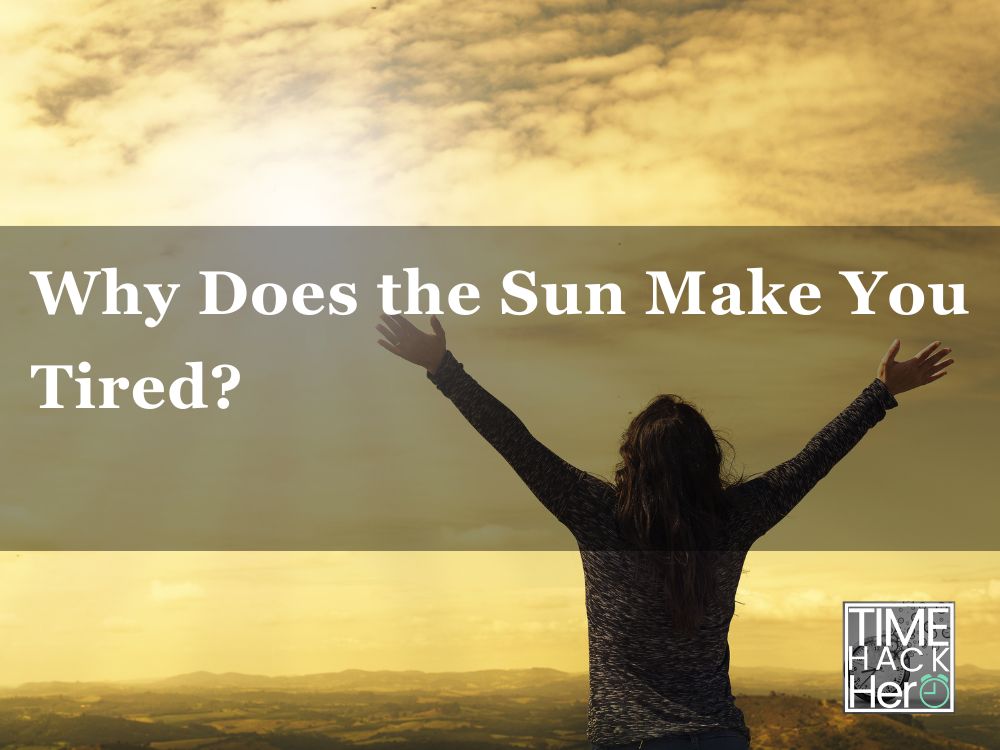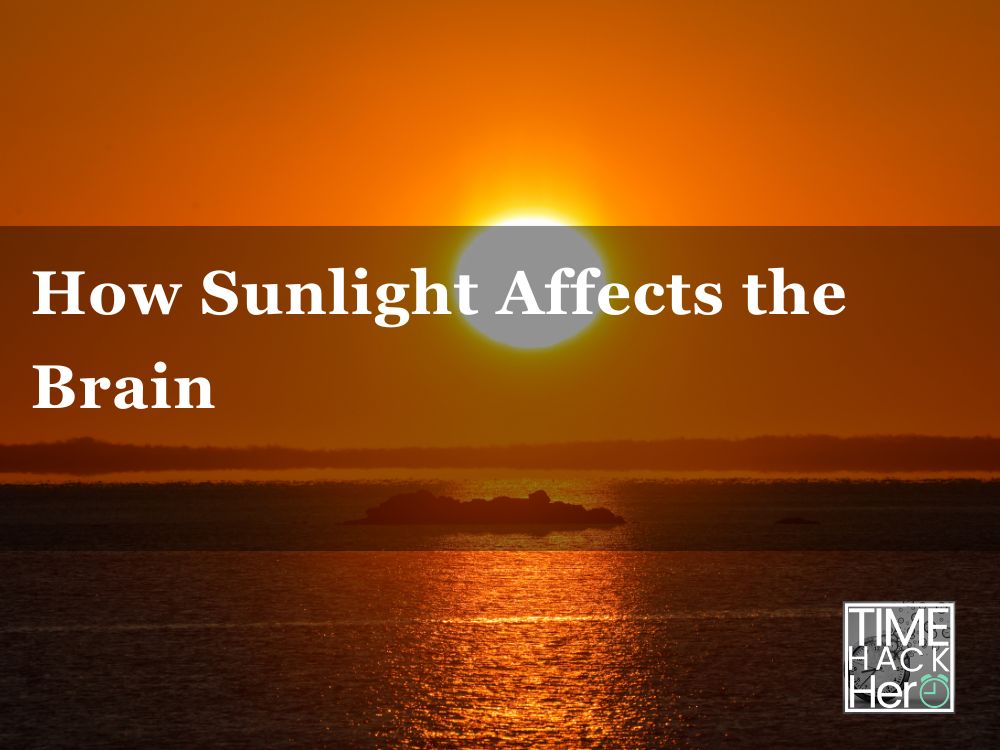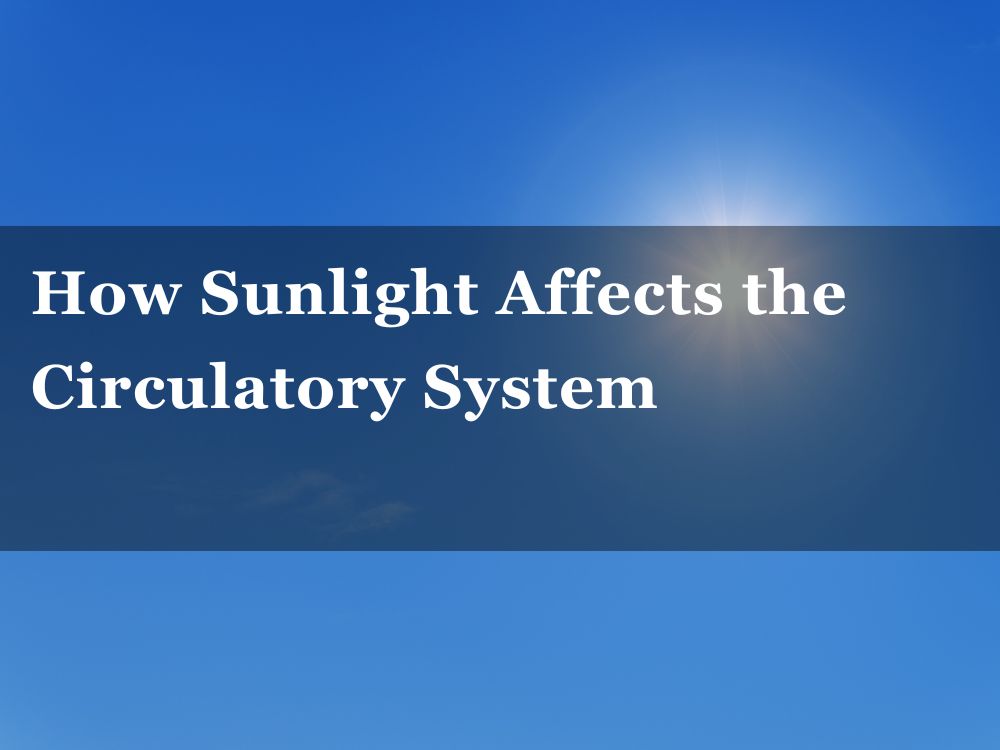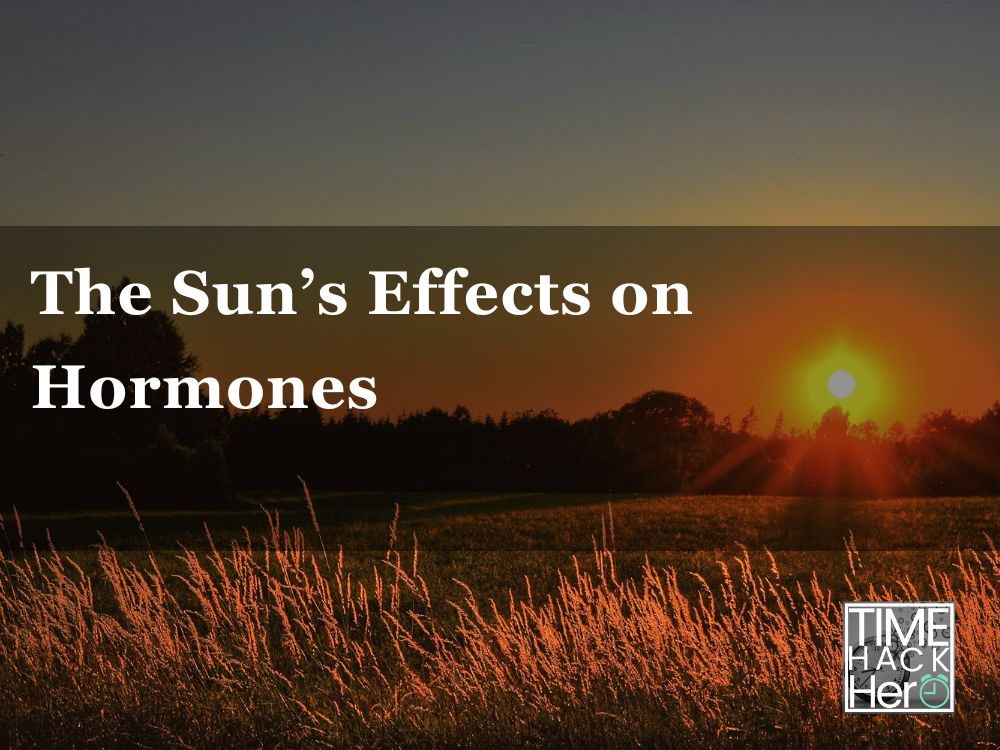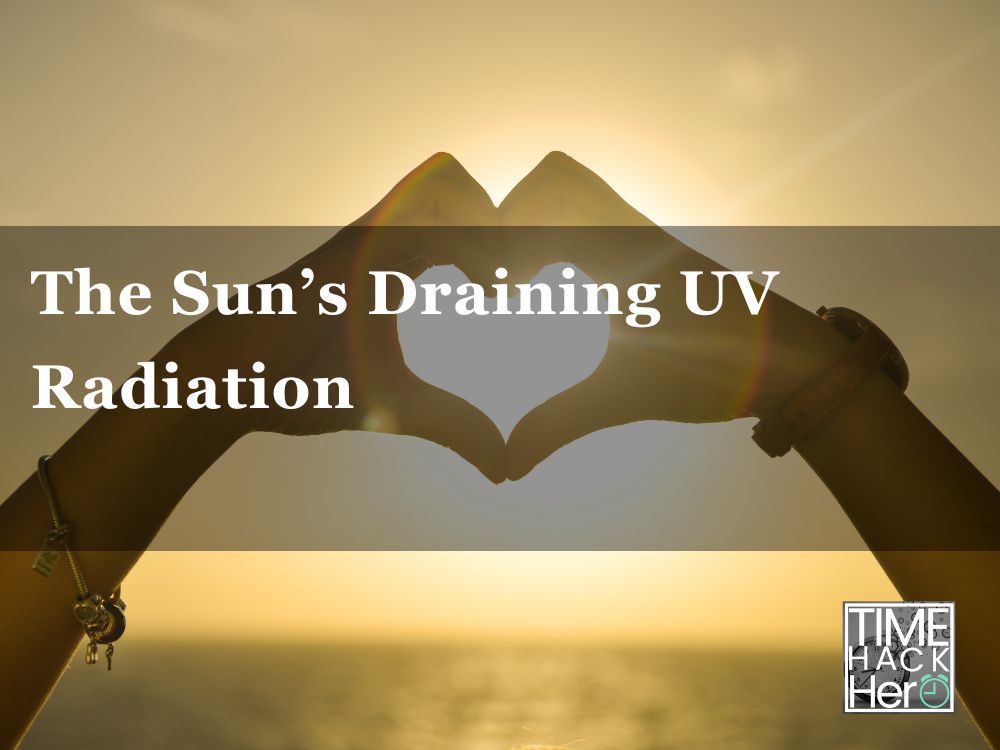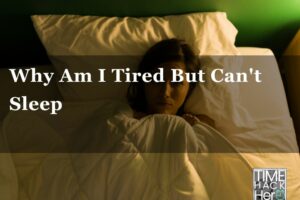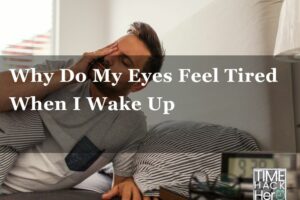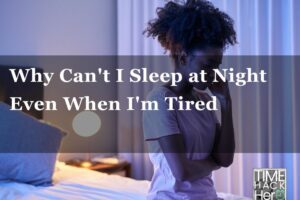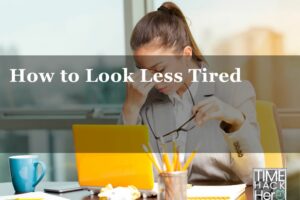It’s a common experience to start feeling drowsy and lethargic after spending time in bright sunlight. Whether you’re lounging at the beach, working in the yard, or even driving in a sunny car, the sun often has a soporific effect. If you’ve ever found yourself nodding off after basking in the summer sun, you’re not alone. There are a few scientific reasons behind this phenomenon.
Table of Contents
Is This Normal?
Feeling tired or sleepy after exposure to bright sunlight is entirely normal. In fact, it’s a natural bodily response. The sun’s effects on your circadian rhythms, heat regulation, melatonin production, and other biological processes make drowsiness a typical reaction. However, excessive sleepiness may also be a sign that sun precautions are needed.
12 Reasons Why Does the Sun Make You Tired?
Here are some of the key factors behind why sunshine can induce feelings of fatigue:
| Mechanism | Explanation | Effect |
|---|---|---|
| Reduced melatonin | Daytime light exposure decreases melatonin production | Feelings of wakefulness |
| Increased serotonin | Sunlight boosts serotonin synthesis and activity | Improved mood, focus and energy |
| Decreased adenosine | Sunlight helps counter daytime buildup of adenosine | Reduction of drowsiness |
| Blood flow changes | More blood sent to skin, less reaches muscles and brain | Fatigue and sleepiness |
| Dehydration | Fluid loss from sweating | Heart must work harder |
| Lower blood pressure | Vasodilation decreases overall blood pressure | Insufficient oxygen reaching brain |
| Melanocyte stimulating hormone | Tanning hormone also causes drowsiness | Correlation between tanning and sleepiness |
| Endorphins | Sun warmth releases endorphins | Calmness leads to fatigue |
| ACTH | Heat triggers ACTH to suppress immune activity | Sluggishness |
| Skin damage | Skin works hard to repair sun damage | Energy expenditure on healing |
| Immune suppression | UV rays impair immune function | Increased effort to remove damaged cells |
| Oxidative stress | Sun triggers free radical production | Energy spent neutralizing radicals |
How Sunlight Affects the Brain
Sunlight can make you feel tired by altering levels of key chemicals and hormones in the brain that regulate sleep and wakefulness. Here’s an overview:
1. Melatonin
Melatonin is a hormone that controls your sleep-wake cycle. It is produced in the brain by the pineal gland.
Sunlight suppresses melatonin production. The pineal gland senses sunlight through special photoreceptor cells in the retina. When exposed to light, it halts melatonin synthesis and secretion, signaling to the brain to feel awake.
But staying in the dark allows melatonin levels to rise, making you feel drowsy and ready for sleep. That’s why exposure to sunlight during the day keeps you alert, while lack of light at night triggers feelings of sleepiness.
2. Serotonin
Serotonin is an important neurotransmitter that regulates mood, appetite, digestion, sleep, learning and memory. It also helps promote feelings of wellbeing and happiness.
Sunlight boosts serotonin levels. Exposure to UV rays from the sun leads specialized cells in the retina to send signals to the brain that stimulate serotonin production and activity. Higher serotonin levels during daytime sun exposure bolster your energy, mood and focus.
As daylight fades in the evening, the stimulation of serotonin synthesis declines. This prepares your brain for restful sleep.
3. Adenosine
Adenosine is a chemical that builds up in the brain while you are awake. It produces feelings of drowsiness that gradually increase throughout the day.
Sunlight helps counteract adenosine. During sleep, adenosine levels fall to low levels to refresh you for the next day. Sun exposure provides signals to the brain that help keep adenosine levels reduced, preventing daytime sleepiness. But as sunlight fades, adenosine accumulates and makes you tired.
How Sunlight Affects the Circulatory System
In addition to acting on the brain, sunlight also induces responses in the cardiovascular system that can leave you feeling sluggish after excess exposure:
4. Body Temperature
Prolonged time spent in the sun raises your core body temperature. To cool itself, your circulatory system redirects more blood flow to blood vessels in the skin.
Increased blood flow to the skin means less blood flow to the muscles and brain. With decreased circulation delivering oxygen and nutrients, you may experience fatigue, muscle weakness, and sleepiness.
5. Dehydration
Extended sun exposure can cause fluid loss through sweating. Dehydration reduces blood volume. This thickens the blood, forcing the heart to pump harder to circulate blood through the body.
Dehydration fatigue sets in as your heart works extra hard. Drinking plenty of fluids is key to avoiding this side effect.
6. Blood Pressure Drop
As blood vessels dilate near the surface of the skin to release heat, overall blood pressure drops. The drop in pressure causes less oxygenated blood to reach the brain.
Low blood pressure leads to dizziness, weakness and drowsiness. Be sure to stay hydrated and avoid prolonged sun exposure to prevent blood pressure reductions.
The Sun’s Effects on Hormones
Solar radiation doesn’t just act locally on the brain – it also stimulates the release of hormones from endocrine glands that have cascading effects:
7. Melanocyte Stimulating Hormone
This hormone produced by the pituitary gland stimulates melanin production in the skin after sun exposure, causing tanning and protection from UV radiation.
But it also makes you drowsy. The same mechanism that darkens your skin color also leaves you fatigued. There’s a strong correlation between sun-induced tanning and sleepiness.
8. Endorphins
The heat of the sun triggers release of endorphins from the pituitary gland. These hormones produce feelings of euphoria and relaxation.
While endorphins feel good, they also make you sleepy. The calmness prompted by endorphins can result in drowsiness and fatigue.
9. Adrenocorticotropic Hormone
The adrenal glands respond to heat and sun exposure by releasing higher levels of ACTH.
ACTH suppresses activity in the immune system, which is thought to contribute to that sluggish feeling after spending time in the sun.
The Sun’s Draining UV Radiation
A key reason the sun leaves you feeling wiped out is due to the effects of UV radiation:
10. Skin Damage
UV rays damage skin cells called keratinocytes in the outer layer of the skin through radiation and oxidative stress.
The skin works hard to repair damage from sunlight exposure, which can drain energy levels and leave you feeling tired.
11. Immune Suppression
UV light suppresses certain activities of the immune system, notably the function of T lymphocytes that normally combat threats.
With your immune defenses impaired, your body has to work harder to remove damaged cells and prevent illness, wearing you down.
12. Oxidative Stress
Sunlight triggers excessive generation of free radicals and reactive oxidative species (ROS) that damage cells and DNA.
Your body expends significant effort to neutralize ROS through antioxidant systems, which can leave you fatigued.
Other Factors that Contribute to “Sun Tiredness”
A few other variables beyond sunlight itself can play a role in post-sun feelings of fatigue:
- Heat – High temperatures from sun exposure strain the heart and cardiovascular system.
- Dry air – Time in the sun dries your airways, making your body work harder to humidify air.
- Lack of cloud cover – More direct UV rays without clouds lead to amplified sun-induced fatigue.
- Reflective surfaces – UV rays bouncing off water, sand or snow intensify sun exposure.
- Altitude – Less atmosphere at higher altitudes results in increased UV radiation.
- Time of day – Later afternoon sunlight causes more fatigue than morning sun.
- Age – Older adults and children are more vulnerable to fatigue from sun.
- Sunburn – Dealing with burned and damaged skin is energy-draining.
- Medications – Some medicines like diuretics or antibiotics increase sunlight sensitivity.
What types of effects can sun-induced tiredness cause?
What types of effects can sun-induced tiredness cause? Here are some potential consequences:
Accidents or Injuries
Drowsiness slows reaction time, reduces coordination, and impairs focus – creating an unsafe situation if you’re driving or operating heavy machinery outside in the sun. UV exposure already hampers brain functions like attention span and judgment as well. Fatigue just compounds the risks.
Missed Work Deadlines
Feeling too tired and groggy after sun exposure can hurt productivity at work and school. You may struggle to concentrate well enough to complete important projects and meet deadlines if you’re drowsy.
Poor Cognitive Performance
Mental fuzziness from feeling tired makes it harder to think clearly, remember details, make calculated decisions, and be mentally sharp. Physical tiredness translates to diminished cognitive performance.
Bad Mood
Dragging through the day in a fog of fatigue can put anyone in a bad mood. Irritability, impatience, lack of motivation, and crankiness are common with excessive tiredness. This can strain relationships at home, school, or work.
Compromised Immune System
Chronic fatigue taxes your body in ways that weaken immune defenses. When you’re already immune-suppressed from UV exposure, further fatigue just makes you more vulnerable to falling ill or developing infections. It prolongs recovery time too.
Weight Gain
Too tired to be active leads to a more sedentary lifestyle. Inactivity coupled with increased appetite from some antihistamine medications can promote weight gain over time. Making healthy lifestyle choices becomes harder when you’re stuck in a cycle of fatigue.
8 Tips to Combat Sun-Induced Fatigue
If sunshine consistently makes you feel drained, what can you do prevent excess fatigue? Here are some tips:
Wear Sunglasses
Don an optically correct pair of UV-blocking sunglasses when outdoors to reduce glare and eye strain. This protects your eyes and overall energy levels. Make sure lenses offer 100% UV ray protection.
Stay Hydrated
Drink plenty of water before, during, and after sun exposure to avoid dehydration. Carry a water bottle as a reminder. Hydration is key for maintaining energy in heat and sunshine. Sports drinks can replenish electrolytes too.
Use Shade Strategically
Take regular shade breaks to give your body and eyes a rest from heat and glare. Structures like trees, umbrellas, canopies, etc. all provide shade relief. Time outdoor activities earlier or later in the day when possible.
Wear a Hat and Sunglasses
In addition to sunglasses, wear a breathable hat to protect your eyes and face from bright overhead sunlight. This reduces squinting and glare which can drain energy reserves.
Prioritize Sleep
Make sure you get enough high-quality sleep to face the day refreshed and energized overall. Your body needs adequate rest to function optimally even in tiring conditions like sun exposure. Don’t skimp on sleep.
Look for Medication Side Effects
Some medications like antihistamines, diuretics, hypertension drugs, and others list fatigue or drowsiness as potential side effects. Talk to your doctor if prescribed medications could be exacerbating sun-related fatigue.
Limit Time Spent in Direct Sunlight
Pace yourself and take frequent indoor breaks if spending extended time in the sunshine. Listen to your body and get out of the sun if you notice significant tiredness setting in. Prevent prolonged exposure.
Get Your Vitamin D Levels Checked
Low vitamin D is linked to fatigue and mood issues. But also get levels tested to make sure you’re not getting too much sun/vitamin D, as excess is also associated with tiredness. Optimize your levels.
Sun Exposure Recommendations
| Time of Day | Recommended Maximum Exposure |
|---|---|
| Morning (before 10 am) | 1 hour |
| Late Morning to Afternoon | 30 minutes |
| Late Afternoon to Evening | 20 minutes |
Why You Should Avoid Too Much Sun
While some sunlight has benefits, excessive sun exposure can leave you feeling drained instead of energized. Follow these sun safety habits to avoid fatigue:
- Limit time in midday sun – Take a break from the sun between 10am and 4pm when UV rays are strongest.
- Seek shade – Rest under trees, umbrellas or shelters instead of direct sunlight.
- Cover up – Wear wide-brimmed hats, long sleeves and pants to protect skin.
- Wear sunscreen – Use a broad-spectrum sunscreen with an SPF 30 or higher.
- Stay hydrated – Drink extra fluids before and after sun exposure.
- Avoid reflective surfaces – Be cautious around water, snow and sand.
- Check medications – See if any medicines increase your sun sensitivity.
Healthier Ways to Get Sun Exposure
You don’t need to avoid the sun completely. Here are some healthy ways to soak up moderate sunlight:
- Take a quick 10-15 minute walk first thing in the morning to get some gentle morning sunlight.
- Eat lunch outside in a shaded area to get indirect midday light.
- In the evening, take a brief 5-10 minute walk around sunset time to wind down.
- On cloudy days, you can spend more time outdoors without risk of fatigue.
- Expose your limbs rather than tanning your face directly to reduce facial skin damage.
- Sit in your car or near windows to enjoy sunlight without harmful UV exposure.
Should I Take Vitamin D Instead of Sunlight?
Since UV rays trigger vitamin D synthesis in the skin, you may wonder if you should take vitamin D supplements rather than getting sun exposure.
Here are some benefits of appropriate sun exposure compared to vitamin D alone:
- Sunlight provides broader spectrum radiation, including infrared radiation that may provide independent health benefits. Supplements only provide vitamin D.
- UV radiation has positive impacts like lowering blood pressure and increasing growth factor hormones. These don’t occur with isolated vitamin D intake.
- Sunlight affects circadian rhythms and sleep cycles more powerfully than vitamin D supplements.
- Sun exposure causes release of nitric oxide, which supports cardiovascular health. Vitamin D does not produce nitric oxide.
For overall health, responsible sun exposure combined with vitamin D intake from food and/or supplements is best. But excessive sunlight should be avoided to prevent fatigue.
Conclusion
It’s only natural to feel some fatigue after time spent soaking up the sun’s rays. However, chronic sleepiness that persists even indoors may be a red flag of sun overexposure or inadequate sun protection. Implementing some preventive habits and sun-safety practices can help you enjoy the sunshine without wiping you out. Pay attention to any excessive tiredness and take steps to moderate sunlight exposure when needed.
Frequently Asked Questions
Does sunscreen help prevent sun-related fatigue?
Yes, proper sunscreen use helps reduce strain on your body from UV radiation exposure. Look for broad-spectrum formulas with SPF 30 or higher. Reapply every 2 hours. Sun protection is key.
Should I take vitamin D supplements to boost energy?
Maybe. Have your blood levels tested first since both low and high vitamin D is linked to fatigue. Supplements may help if you’re deficient, but don’t take unnecessary mega-doses. Talk to your doctor.
Can certain foods or drinks help overcome sun-related tiredness?
Hydrating, electrolyte-rich drinks can help replenish fluids, minerals and energy. Caffeine in moderation may provide an alertness boost. Light, energizing foods like fruits and veggies can also refresh you.
Is it okay to close my eyes for 15-30 minutes in the sun if I feel fatigued?
No, it’s best to seek shade or go indoors if feeling significantly tired from the sun. Closing eyes reduces glare but doesn’t protect your skin. Set a phone alarm if concerned about falling asleep in the sun.
Should I avoid early morning sunlight if I’m naturally not a morning person?
Not necessarily. In fact, brief early sun exposure can actually help sync your circadian rhythm and promote an alert wake-up response. Just limit time in morning sun if you feel excessively tired or drowsy from it.

